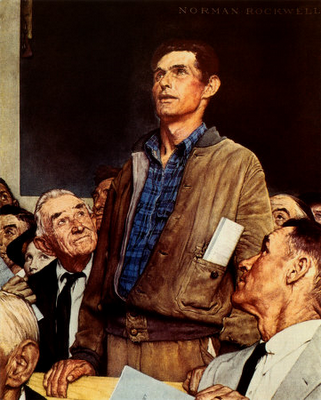Long ago, European kings borrowed from the Doge of Venice or Florentine merchants or Genoese bankers. They were under no obligation to repay these loans and sometimes neglected to do so, a neat way of settling public debt. Many years later, the young Soviet regime announced that it would not be held accountable for money the tsars had borrowed and squandered, so generations of French savers suddenly found they had worthless Russian loans in their attics.
But there were more subtle ways of getting out of debt. In the UK, debt declined from 216% of gross domestic product in 1945 to 138% in 1955, and in the US it fell from 116% of GDP to 66%. Without any austerity plan. Of course, the surge in post-war economic development automatically reduced the proportion of debt in national wealth. But that was not all. States repaid a nominal sum at the time, reduced each year by the level of inflation.
If a loan subscribed at 5% annual interest is repaid in currency that is depreciating at the rate of 10% a year, the real interest rate becomes negative to the benefit of the debtor. Between 1945 and 1980, the real interest rate in most western countries was negative almost every year. As a result, as The Economist remarked: “Savers deposited money in banks, which lent to governments at interest rates below the level of inflation” (6). Debt was cut without much trouble. In the US, negative real interest rates were worth the equivalent of 6.3% of GDP per year to the Treasury, from 1945 to 1955 (7).
Why did savers allow themselves to be cheated? They had no choice. Capital controls and the nationalisation of the banks meant that they had to lend to the state, and that is how it got its funds. Wealthy individuals did not have the option to invest on spec in Brazilian stock index-linked to changes in the price of soybeans over the next three years. There was a flight of capital, suitcases of gold ingots leaving France for Switzerland the day before devaluation or an election in which the left might win. However, this was illegal.
Up to the 1980s, index-linked wage rises (sliding scales) protected most workers against the consequences of inflation, and controls on free movement of capital had forced investors to put up with negative real interest rates. After the Reagan/Thatcher years, the opposite applied.
Sliding wage scales disappeared almost everywhere: in France, the economist Alain Cotta called this major decision, in 1982, “[Jacques] Delors’ gift [to employers]” (8). Between 1981 and 2007, inflation was destroyed and real interest rates were almost always positive. Profiting from the liberalisation of capital movements, “savers” (this does not mean old age pensioners with a post office account in Lisbon or carpenters in Salonika) make states compete for funds and, as François Mitterrand said, “make money in their sleep”. Moving from sliding wage scales and negative real interest rates to a reduction in the purchasing power of labour and a meteoric increase in returns on capital completely upsets the social balance.
(snip)
This confirms a trend already noticeable 20 years ago: real political power is shifting to areas where democracy carries no weight, until the day when indignation finally boils over. Which is where we are.
But indignation is powerless without some understanding of the mechanisms that caused it. We know the alternatives – reject the monetarist, deflationist policies that deepen the crisis, cancel part of the debt if not all of it, take over the banks, get finance under control, reverse globalisation and recover the hundreds of billions of euros the state has lost by tax cuts that favour the wealthy (?70bn in France in the past ten years, more than $1 trillion in the US, especially for the top 1% of income earners). And knowledge of these alternatives has been shared by people who know at least as much about economics as Trichet, but do not serve the same interests.
This is not a technical and financial debate but a political and social battle. Of course, the economic liberals will claim that what progressives demand is impossible. But what have they achieved, apart from creating a situation that is unbearable?
http://mondediplo.com/2011/07/01europe
What the article is saying is that the way Britain and Europe and the US got out from under post war debts was with a policy of keeping inflation higher than interest, so that the debt comes down over time. Workers were protected by tying wages to inflation. Capital controls prevented the rich from investing elsewhere.. they were mostly stuck with banks, which paid interest that amounted to only half inflation.
The upshot is that the rich and savers bore the brunt of paying off state debts. Inflation was high but 10% is not hyperinflation. Average folks were protected from inflation with the sliding wage scales. This sounds like it worked.. it rings true.. only people who got a little bit soaked were the rich.
I'm not arguing in favor of this, just inviting anyone who can to offer up a counter argument. Fascinating essay, I always thought the Reagan years were when everything got seriously screwed up -- this article explains why.








